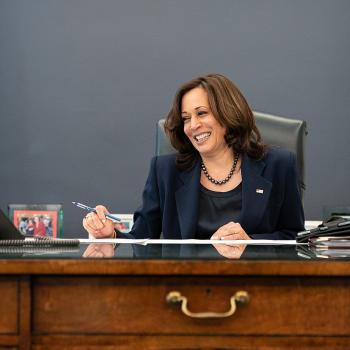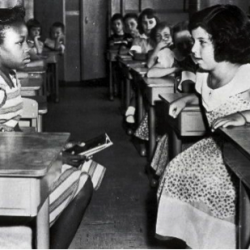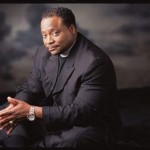I am a college professor. It is an essential part of my identity. Yes, I research, publish (not as much as I should), and consult but nothing gives me greater joy than my interactions with my students. Teaching, particularly the motley crew of pre-adults known as the 18-21-year-old demographic, is the means of grace by which I offer myself to God and the world.
Pre-adults. That’s who and what they are. When they enter our classrooms, many of them have never formed an independent thought of their own. The tapes that play in their heads that inevitably shape their interactions are created by parents, teacher, churches, and yes, our culture. Their lives are a culmination of enrichment courses, parental demands and angst, and standardized tests designed to get them into the college. They are so programmed when they hit our doors that it takes almost 4 years for them to really start figuring out what kind of ice cream they really like.
Our students sit in a middling place that is as promising as it is dangerous. They are old enough to drive cars; travel abroad; and use a credit card but they are not mature enough to always understand the consequences of driving too fast; failing to heed warnings of staying with the group; or predatory interest rates. They are high school students whose acne is just clearing up; who can buy birth control on their own, and sleep in on Sundays instead of being bothered with church. They miss more deadlines than they make; They still cry when they are hurt; and just like any 5-year-old they just want someone to hold their hand and be their friend.Sadly and often tragically, unlike high school, they find out that one bad night; one stupid decision; one wrong turn can lead to life changing consequences. However, when done right and when at all possible (barring criminal behavior) the University and its professors can shine a hopeful light and offer an opportunity to begin again anew.
Perhaps this is why the situation at OU saddens me so deeply. Because rather than confronting, challenging, AND teaching; a college community merely washed their hands and decided that their students were beyond redemption. While Bob Stoops and President Boren were making the heroic rounds as defenders of civility, in my humble opinion, they missed a wonderful opportunity to teach their students how to live, disagree, and unite as a civil community. They perpetuated our society’s Hunger Games philosophy of total annihilation- blame them, shame them and erase them.
Here are four key teachable moments from the classroom of OU/SAE that I believe were missed:
Moment 1: Outrage=Hypocrisy. No one enjoys being called a nigger, especially me. But after living 49 years on this planet in black skin in America, I am not shocked nor horrified when I hear it whether it is directed at me or not. What bothers me most when situations like this happen is all the self-righteous hand wringing and moral indignation of many late in life progressives. It is always interesting to me that when it comes to racial justice, every progressive loves to tell black folks how their families always fought against segregation; how they have always had black friends; and how they are outraged by racism. If you listen to them, they have NEVER let a racial slur slip nor laughed at an off-color joke; nor heaven forbid ever thought a negative thought about a black person, even as they locked their doors when approaching ‘that side of town.’ Since we all know that we all have said things behind closed doors that would have us vilified if they ever saw the light of day, how about we cut these boys a little slack?
Moment 2 Racism is a congenital heart condition: A child doesn’t have to have a parent that shouts racial slurs from the top of their lungs daily to learn to hate. No, rather than the explicit messages of racism like ‘coon’ ‘boy’ or ‘monkey’— children learn from what their parents don’t say. White children learn the lessons of bigotry when their parents isolate them from “those people” by sending them to private schools instead of the public schools in their neighborhoods. Their arteries become clogged with prejudice when the only people of color they encounter are those who serve their meals, clean their rooms, or carry their bags. Clots of intolerance form when they are sheltered behind exclusive enclaves that protect a lily-white existence—never allowing them to experience the diversity of humanity. Young white adults suffer myocardial infarctions of bigotry when their churches either ignore race by erasing it or frame people of color as ‘objects of mission’ rather than collaborators in the Great Commission. So after 12 years of a steady diet of erasure, dismissal, and hypocrisy when these boys have a full blown cardiac arrest of racism, rather than giving them a defibrillator of God’s grace and challenging them to see the sacred worth of all—we pull the plug and do a dance on their graves.
Moment 3: The best way to deal with a racist is to show them the dissonance in their lives. Rather than marching and shouting, what if President Boren invited the young men on that bus who sang their hateful song to sit and watch the video with the black staff members of the SAE house who fixed their meals and cleaned their rooms? Just played it over and again or even ask them to sing the song live. What if after their live performance President Boren finally allowed Walter, the man who cooked their meals for the last 15 years to ask the young men one simple question: “is this what you really think of me?” See most racists, like homophobes hold to their views in isolation. I believe when those young men came face to face with the people who cared for them and loved them, the full impact of their behavior would then be clear—“How can you profess love for a God you have not seen while hating (hurting) your brother that you see every day?” As the boys and girls who withstood Bull Conner’s hoses will tell you— the human conscious is a most power ally in the battle for social justice.
Moment 4: It is all about outcomes. Every teacher worth their salt knows that every lesson has an outcome whether intentional or not. So the question exists—what do we want these young men to learn? If we wanted them to learn that racism is bad, well we missed it. Instead, they have learned the opposite. They have learned that racism must never be articulated; it must be hidden; it must enacted but never espoused. These boys got in trouble for what they SAID not what they DID. Removing them from campus, away from the fragile constitution of Sooner nation, teaches them nothing except to make sure they aren’t being recorded when they rant and chant. Was it great PR for the University of Oklahoma? Heck yes. They look decisive and like a bastion of civil rights. But have they really protected their students? Have they fulfilled their mission? no.
Dr. King’s most enduring premise was that while laws could give us the right to go to school and eat at the lunch counter together, only the Gospel of Jesus Christ could heal the heart condition known as racism. Dr. King’s work was grounded in the crazy idea that without the transformative power of the Holy Spirit meeting us in the convicting rooms of our own consciousness, our efforts to live in true fellowship would be hollow and half-hearted. Such conversions happen in conversations–not yelling, not screaming, but in a sincere desire to listen and be heard. Our knee-jerk reactions to the subject of race reveal our great discomfort with real conversation regarding how this sad legacy continues to affect us all. There is a time for marching and there is a time for conversation. This was a time for conversation and intervention. By expelling these students, OU made it easier for them to hide and to avoid the real mid-term exam of their lives.
Look, I know it is easier just to be done with these students. Bashing them is incredibly popular and dismissing them from the island of humanity appears to be all the rage. Unfortunately, I am called to the two most idealistic professions—teaching and preaching and I believe in the power of conversion. I believe in the power of Grace. I believe in a God of Second Chances. I believe in a God who is a master teacher.
I know. How silly of me.















